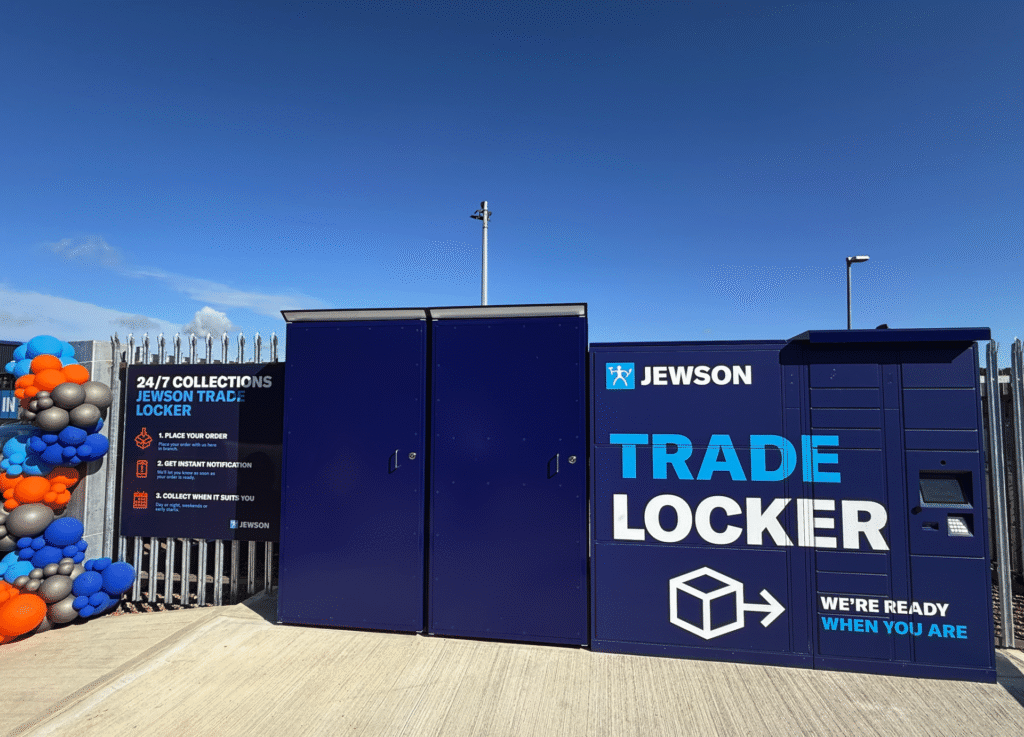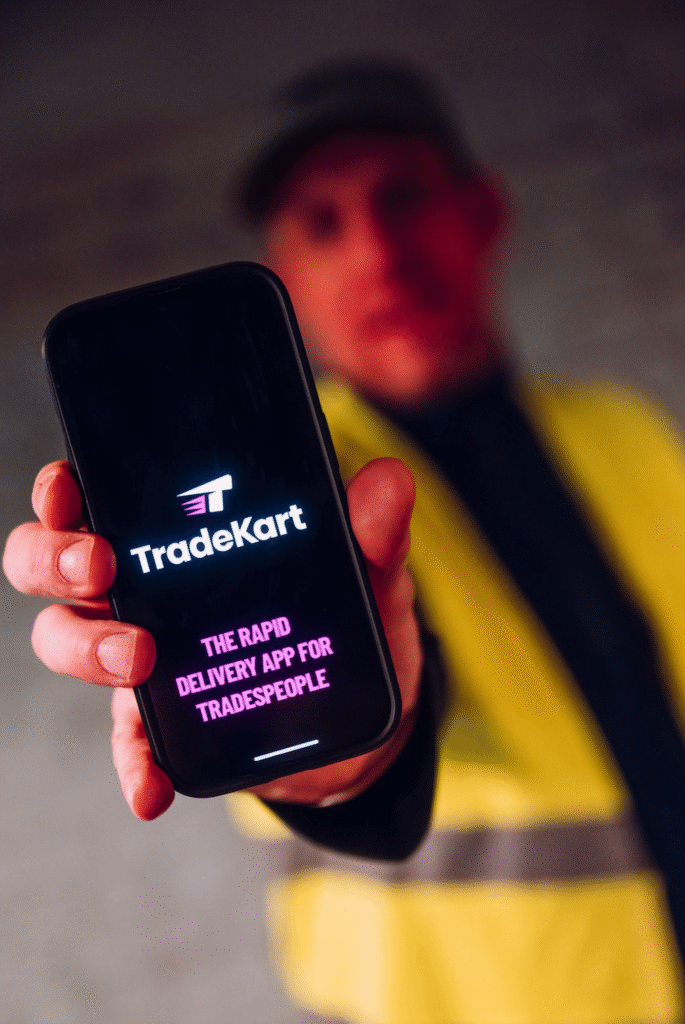
The builders’ merchant sector is entering a period of profound change. For decades, our industry has been built on personal relationships, stock availability, and competitive pricing and although these will always be important, today a new battleground has emerged: Convenience.
Trade customers are busier than ever, juggling multiple jobs, managing apprentices, handling paperwork, and responding to the increasing demands of homeowners who expect faster, slicker services. Against this backdrop, the measure of a merchant’s value is shifting. The tradesperson’s most precious commodity is no longer money, it is now time, and those merchants who can save them time will be the ones who secure their loyalty.
Why Convenience Matters More Than Ever
The average tradesperson spends hours each week sourcing, collecting and paying for materials. Every wasted journey to a branch where stock isn’t available, every delay at the counter, every clunky online process translates directly into lost earnings. Increasingly, tradespeople benchmark their experiences with merchants against the seamless, on-demand services they enjoy in their personal lives. Amazon, Deliveroo, Uber, and the local supermarket have all raised the bar, and expectations in our industry are rising in step.
What makes this challenge more complex is the generational divide among trade customers. Established tradespeople still value the in-branch experience, with knowledgeable staff, trusted advice and immediate product availability. By contrast, younger tradespeople, many of whom are digital natives, expect mobile
first ordering, real-time stock visibility and rapid fulfilment as standard. For them, convenience is defined less by personal relationships and more by the speed and reliability of digital tools. In this new landscape, merchants are no longer just competing against one another; they are competing against the expectations set by the wider retail world; Convenience has become the critical battleground.
The Digital Front Door
For an increasing number of tradespeople, the journey now begins online, not in branch. Yet too many merchants still treat digital as an afterthought, with outdated websites and patchy apps. To succeed in the market today, merchants must have a digital front door that’s open 24/7. Customers want to search, check live stock levels, place orders and arrange payment at a time that suits them, whether that’s late at night or first thing in the morning.
What they see online must also reflect reality. Incorrect stock levels when a tradesperson arrives at branch undermines trust faster than almost anything else. Real-time, branch-level data is now a baseline expectation. When the digital journey works, it doesn’t just benefit the customer, it drives branch efficiency, reduces queues, and frees staff to spend more time offering advice and support.
Click & Collect Comes of Age
Click and collect has revolutionised grocery and fashion retail. Builders’ merchants are now following suit, with click and collect becoming one of the most valuable tools in the fight for customer loyalty The model is simple but transformative. Tradespeople can order via their phone and pick up within minutes.

Increasingly, merchants are installing secure lockers that allow collections long after the branch has closed.
For a tradesperson finishing a job late in the evening, the ability to collect materials for the next morning on the way home is a game changer. It removes stress from the working day and allows the merchant’s assets to earn their keep well beyond traditional opening hours.
For merchants, pre-picked orders also smooth out workloads and reduce counter congestion, turning convenience into an operational win as well as a customer benefit.
Delivery Without Friction
If click and collect is one half of the convenience equation, delivery is the other. Next-day is now an expectation rather than a differentiator, and the ambition is increasingly same-day fulfilment, with accurate time slots and live tracking.
Tradespeople want to know when their delivery will arrive, and they want to trust that it will be complete and correct. Merchants who invest in route optimisation, delivery tracking, and flexible slots are turning logistics from a source of frustration into a loyalty driver.
Innovative businesses like TradeKart in the UK, have recognised this shift. Positioned as a “Deliveroo for building supplies,” TradeKart offers rapid delivery from local merchants, often in as little as one hour. For busy tradespeople working in urban areas, the ability to have materials arrive on site almost as quickly as ordering a takeaway is a powerful example of how convenience can redefine expectations.
Payments, Credit and Transparency
Convenience also extends to how customers pay. Nothing undermines the customer experience faster than clunky processes at the counter, unclear discounts, or rigid credit terms. Merchants must focus on offering frictionless, contactless payments, supported by transparent pricing and digital account management.
For smaller trade businesses, simple credit options can be the difference between winning and losing a job. Giving customers the ability to monitor spend, manage invoices and apply for credit through an app turns what was once an administrative burden into an effortless process.
The Loyalty Dividend
Convenience, when executed well, delivers more than efficiency. It creates what I refer to as ‘The Loyalty Dividend’. Tradespeople who feel supported, whose time is valued, whose materials are ready when they need them, whose payments are seamless, are far more likely to stick with their merchant, even if a competitor occasionally offers a lower price.
This kind of loyalty is no longer transactional, it becomes emotional. And emotional loyalty is far harder for competitors to dislodge, as it transforms the merchant from being simply a supplier to being a trusted partner in the customer’s business.
Learning from Retail
Reassuringly, our industry doesn’t need to reinvent the wheel. Retail has been solving these challenges for years. Supermarkets pioneered click and collect, online retailers perfected live stock visibility and delivery tracking, whilst fashion chains normalised mobile payments and loyalty apps.
The opportunity for builders’ merchants lies in taking these proven models and adapting them to the realities of the trade. Lockers must be sized for bulkier items. Delivery fleets must be equipped for heavy, awkward loads. Loyalty schemes should focus not just on discounts but also on training, support, and recognition.
Screwfix is already showing what’s possible. Its app is not just a transactional tool but a personalisation platform, offering tailored promotions, rapid click and collect, spend tracking and account management. By embedding itself in the daily workflow of tradespeople, Screwfix demonstrates that convenience and loyalty are deeply connected.

The Bottom Line
The successful merchants of the future will be defined not only by their range, expertise and pricing, but by their ability to remove as much friction as possible from the customer journey. Every wasted minute is a lost opportunity; every saved minute is a reason to return.
In addressing this challenge, merchants must recognise that their customer base is not one-size-fits-all. The established tradesperson may still prefer the reassurance of a face-to-face counter conversation, while the younger generation expects a slick, mobile first experience. Success will come from serving both customers with equal skill, balancing trusted human interaction with the speed and convenience of digital.
Merchants who embrace this shift, through seamless digital journeys, robust click and collect, smarter delivery, and frictionless payments will earn not just more transactions, but deeper, longer-lasting loyalty. In an industry where margins are tight and competition fierce, convenience is the battleground worth fighting for.
Those who recognise this today will be the market leaders of tomorrow.
Steve Collinge is an international speaker, influencer, retail commentator and is Managing Director of Insight Retail Group Ltd and executive editor of Insight DIY. You can follow Steve on LinkedIn and Twitter.











